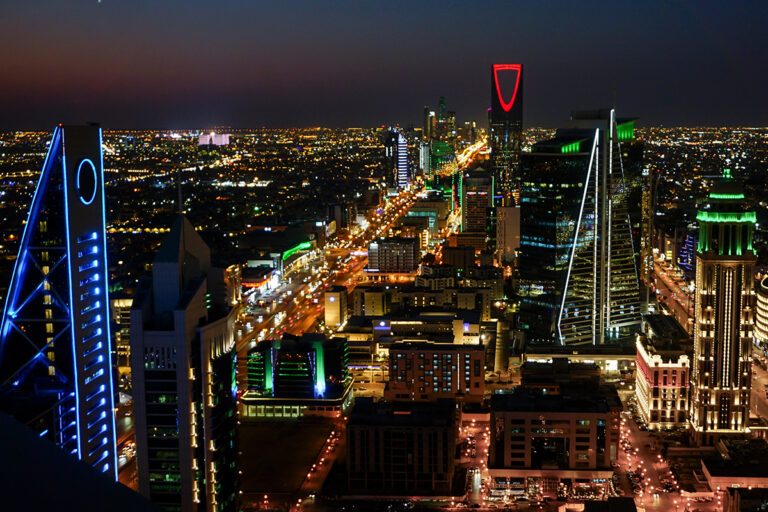Saudi Arabia could emerge as the Middle East’s Silicon Valley, with moves to partner directly with global leaders in new-age tech to form the bedrock for powering local innovation, sector experts said.
Institutional alignment, sovereign capital and regulatory clarity make the country an execution-first environment for AI and Web3 startups.
Saudi Arabia is also making smart moves to build its own AI infrastructure through sovereign initiatives like Humane aimed to ensure data sovereignty, strategic control and scalable impact, besides aligning with national values and priorities, that can act as a template for emerging economies to model their digital futures instead of outsourcing them, experts said.
“Saudi Arabia is building infrastructure, not just regulation. While Europe debates constraints, Saudi partners directly with global innovators to build at scale,” Johanna Cabildo, CEO of D-GN (Data Guardians Network), told Arabian Business.
“When a government like Saudi Arabia doesn’t just endorse, but funds and deploys AI across ministries, oil giants and smart cities, it creates demand signals that attract private innovators,” she said.
Cabildo cited moves like Saudi Aramco’s engagement with US-based droppGroup for developing foundational AI and blockchain systems as smart measures to power local innovation.
Industry players said the Saudi government’s $40 billion AI investment is bound to reshape the country – as well as the wider region – into a competitive innovation hub, triggering a large-scale influx of global talents into the country.
The kingdom’s big AI push in line with its ‘Vision 2030’ is turning the country into a magnet for global AI builders, she said.
Saudi Arabia’s AI ambition
Experts said Saudi Arabia is one of the few markets with both political will and economic scale to support the next wave of AI and Web3.
The Saudi market is seeing a healthy combination of convergence of technologies with active support of local regulators, she said.

Jaspreet Bindra, Co-founder, AI&Beyond, said the kingdom is rapidly positioning itself as the Silicon Valley of the Middle East by combining sovereign capital, regulatory clarity, and bold partnerships with global tech leaders.
“It’s a smart, future-facing approach that not only fosters local innovation, but also offers a replicable model for other emerging economies to shape their digital futures on their own terms rather than relying on external ecosystems,” Bindra told Arabian Business.
Cabildo said if Saudi Arabia introduces clear regulations and fast onboarding frameworks, it will not just attract founders, it will become the launchpad for global ventures building around data sovereignty, digital identity and decentralised intelligence.
“This is where the next breakout companies could be born,” she said.
Citing that the Saudi Capital Market Authority (CMA) has quietly issued over 80 tokenisation licences as far back as 2021, Cabildo said the intent has been there for a push to innovate locally.
Blockchain adds the transparency and ownership AI needs, she said.
Senior executives at other tech firms said Saudi Arabia – as well as countries like the UAE in the region – is stepping out from being a consumer of innovation to becoming a global producer.
This could turn the kingdom into the new centre of gravity for AI, where capital talent and emerging technologies collide, she said.
Pointing out that Saudi Arabia’s $40 billion AI push is more than an investment, it’s a declaration, Cabildo said such moves signal that the country will not just replicate Silicon Valley, but will build something different – an ecosystem built for sovereign-scale digital infrastructure that prioritises trust, equity and intelligence.
“With the right moves, Saudi Arabia has the potential to pull the future toward it,” she said.

AI powers industry shift
Industry players said collaborations such as Saudi Aramco’s mega AI and blockchain deal with droppGroup are expected to have a significant impact on traditional sectors such as energy, logistics and education in the country.
AI can revolutionise operations in the energy sector, with predictive maintenance, powered by machine learning, that could save billions by preventing outages in Aramco’s oil fields.
In logistics, AI-driven systems will streamline supply chains, cutting delays at ports like Jeddah and optimising NEOM’s global trade hub, while in education, AI will personalise learning with platforms like the National e-learning initiative, equipping students for a digital economy, she said.
Cabildo said the real transformation, however, will be in the workforce.
“Vision 2030’s Human Capability Development Programme aims to shift workers from routine tasks to knowledge-driven roles. [Deal like the Aramco-droppGroup] fuel that shift, creating demand for data scientists, AI engineers and innovation managers – roles critical to a diversified economy,” she said.
With such moves, Saudi Arabia aims to generate thousands of tech jobs by 2030, reducing oil dependency, she said.





